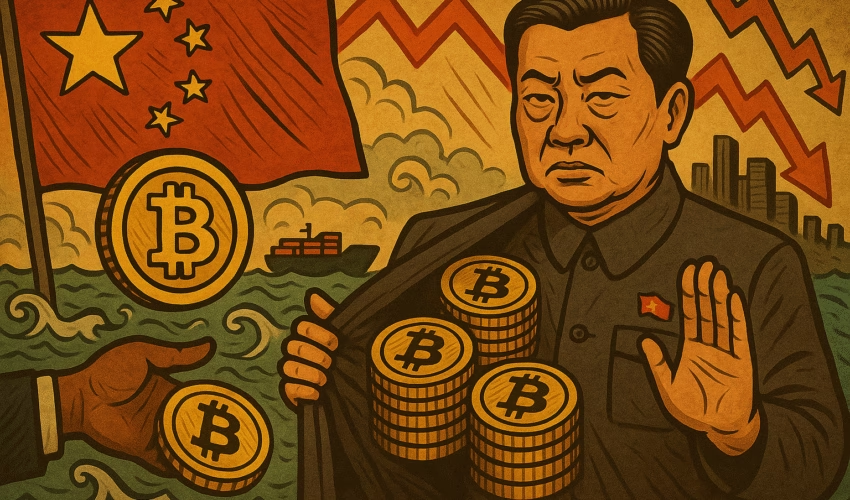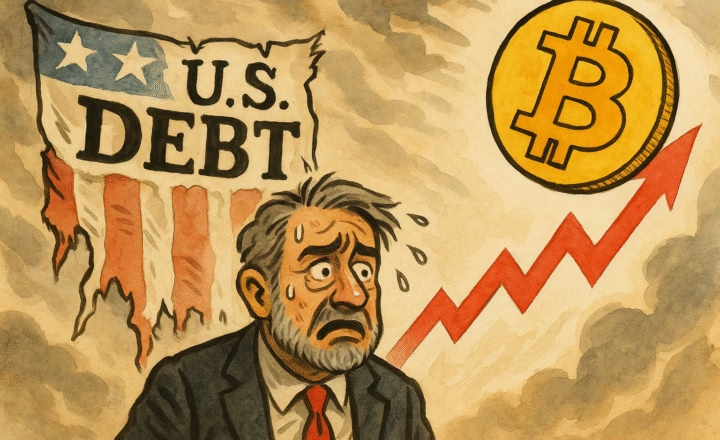Local Governments Offload Crypto Despite National Trading Ban
Local governments in China are reportedly selling seized cryptocurrencies through private companies on offshore markets, sidestepping the country’s longstanding ban on crypto trading, according to an April 16 report from Reuters.
Citing court and transaction documents, Reuters revealed that the proceeds are being used to supplement shrinking public coffers amid a period of economic slowdown and rising fiscal pressure. These decentralized sales, however, are raising legal and ethical concerns.
“This is a makeshift solution that, strictly speaking, is not fully in line with China’s current ban on crypto trading,” said Professor Chen Shi of Zhongnan University of Economics and Law.
China Among World’s Largest Bitcoin Holders
By the end of 2023, local Chinese governments reportedly held around 15,000 BTC, worth approximately $1.4 billion. Nationally, China is estimated to hold over 194,000 BTC, making it the second-largest Bitcoin holder in the world—trailing only the United States, according to blockchain tracker Bitbo.
Despite its ban on cryptocurrency trading and mining since 2021, China continues to accumulate digital assets through law enforcement seizures, often linked to money laundering, gambling, or cybercrime cases.
In 2024 alone, Chinese authorities prosecuted more than 3,000 individuals for crimes involving crypto-related money laundering, according to official state data.
Legal Gray Area and Calls for Policy Reform
The practice of selling crypto outside China’s borders has exposed the regulatory vacuum surrounding seized digital assets. Legal experts told Reuters that “inconsistent and opaque approaches” have opened the door to potential corruption and weakened rule of law.
“The central bank should handle all seized digital assets and either sell them in bulk overseas or establish a national crypto reserve,” said Shenzhen-based lawyer Guo Zhihao.
This sentiment was echoed by Ru Haiyang, co-CEO of HashKey, a Hong Kong-based crypto exchange. He suggested that China might consider holding seized Bitcoin as a strategic reserve, much like U.S. President Donald Trump has proposed through a Strategic Bitcoin Reserve.
Others have floated the idea of creating a state-managed crypto sovereign wealth fund based in Hong Kong, where crypto trading is legal and regulated, unlike in mainland China.
Crypto as a Hedge Amid U.S.-China Tensions
The timing of these developments is critical. As U.S.-China trade tensions escalate and the Trump administration introduces a raft of tariff policies and pro-crypto regulations, several observers suggest that China’s yuan could come under devaluation pressure—which may, in turn, lead to capital flight into crypto assets.
The quiet selling of seized Bitcoin underscores a fundamental contradiction in China’s approach: while the government restricts domestic retail crypto access, it remains deeply involved in the management, sale, and strategic implications of digital assets on the international stage.
Final Thoughts: Strategic Reserve or Political Liability?
China’s handling of seized crypto illustrates the growing role of Bitcoin as a geopolitical and fiscal asset, not merely a speculative tool. Whether China formalizes this process through the People’s Bank of China (PBOC) or continues with offshore ad hoc liquidations, the world will be watching.
As tensions with the U.S. mount and digital assets become tools of strategic statecraft, the question remains: Will China treat its crypto holdings as political liabilities—or as a strategic reserve to rival the West?












